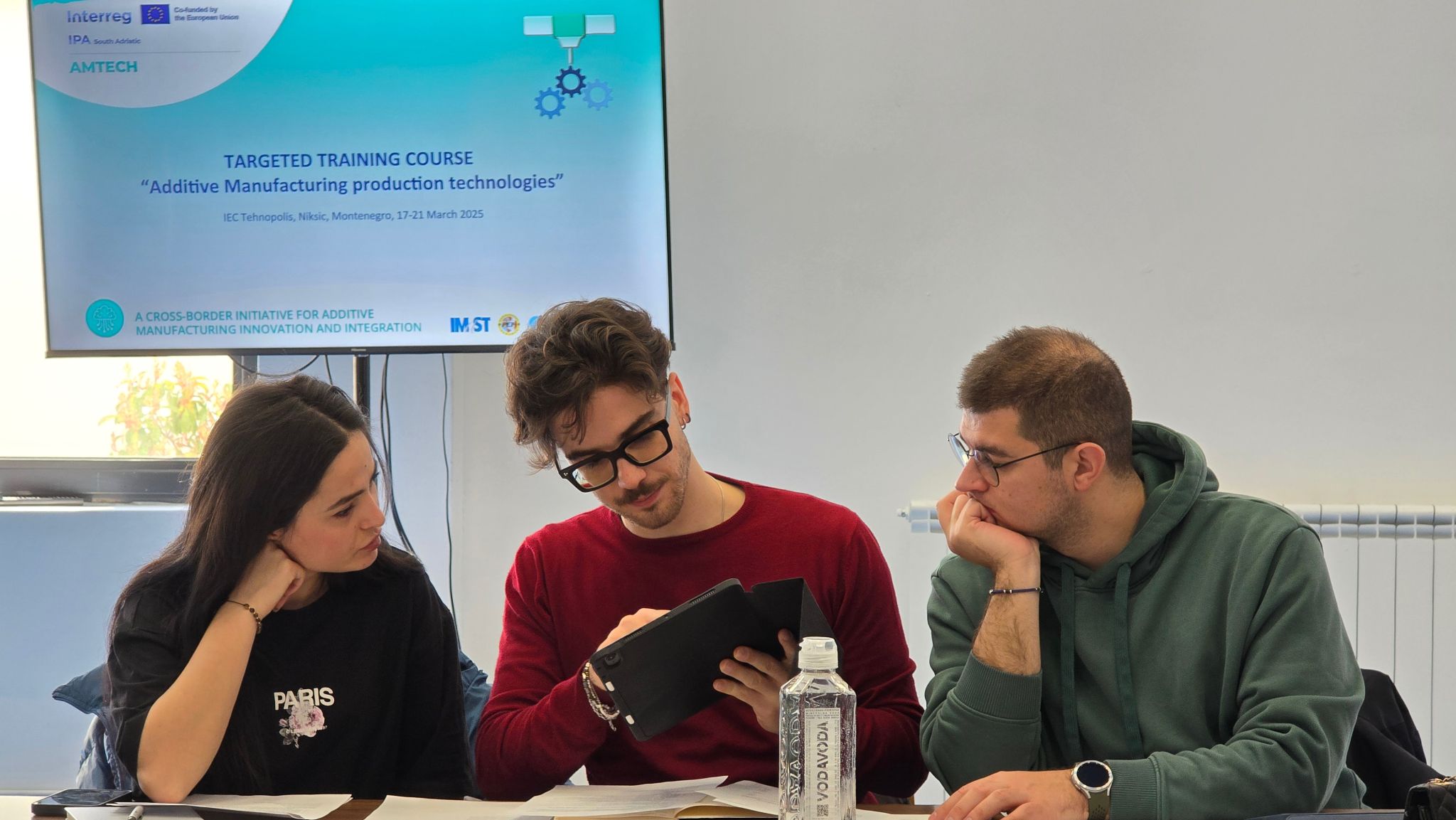
The AMTECH project has officially come to an end. This strategic initiative aimed to support SMEs in both traditional and strategic sectors across the participating countries – Albania, Italy (Puglia and Molise), and Montenegro – in addressing the future challenges of the manufacturing sector.
The main goal of the project was to promote the adoption of innovative technologies, particularly in the field of additive manufacturing, to enhance production efficiency, reduce waste, and lower energy consumption.
Led by IMAST – Technological District for Materials Engineering, in collaboration with, Pro-Eksport Albania Association, Innovation and Entrepreneurship Centre Tehnopolis, and Sviluppo Italia Molise the AMTECH project engaged 413 stakeholder representatives across the three countries through a wide range of activities.
The following highlights summarize the key achievements and strategic outcomes of the AMTECH project, structured around three main pillars:
1. Three Levels of Participation for tangible Impact
Throughout the project, different types and degrees of stakeholder involvement were implemented:
- Informational Participation
Stakeholders were kept informed about the progress, results, and potential of additive manufacturing (AM).- Opening Conference in Bari: 55 representatives from academia, industry, and public institutions
- 3 Workshops in Molise, Montenegro, and Albania: over 190 participants and 22 expert speakers
- Final Conference in Tirana: 45 representatives from academia, industry, and public institutions
- Consultative Participation
Stakeholders contributed to the planning process through interactive discussions and questionnaires, influencing the content and direction of each partner’s district model. - Collaborative Participation
Stakeholders were directly involved in co-creating the next phases of the project. - o 2 incoming missions in Puglia: over 60 participants visited 3D printer manufacturers, companies using AM, and research labs with cutting-edge equipment
- training courses in Molise and Montenegro: 36 professionals and students explored both technical and commercial aspects of AM in an interactive format
2. Cross-Sector Dialogue and Knowledge Exchange
The project fostered dialogue among actors from various sectors of the supply chain, ranging from high-tech industries (aerospace, mechatronics, automotive) to more traditional ones (mechanics, medical), enabling mutual exchange of experiences and needs. Connections established with universities will help promote technological advancement within the industrial fabric of the involved regions.
3. Commitment to Long-Term Cooperation
The most significant result is the confirmed willingness of 33 stakeholders to continue long-term collaboration:
- 26 Letters of Support from companies
- 5 from universities/research centers
- 2 from other organizations
One of the key outcomes was the development of a Joint Action Plan, a strategic roadmap designed to establish stable and ongoing district-level collaboration among the partner regions. This plan lays the foundation for a transnational network of technical and scientific expertise, encouraging knowledge exchange and the integration of advanced technological solutions into local SMEs.
The AMTECH project stands as a virtuous example of international cooperation and applied innovation, with a tangible impact on the productive fabric and economy of the involved territories.




